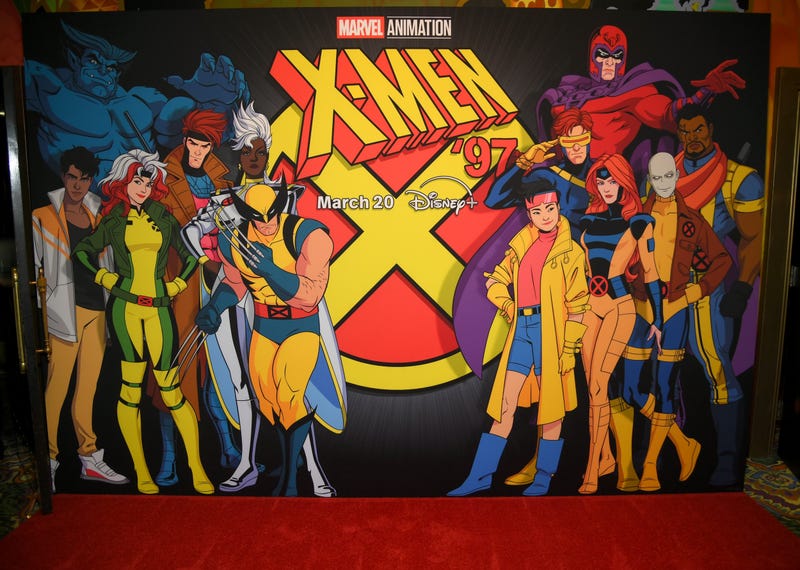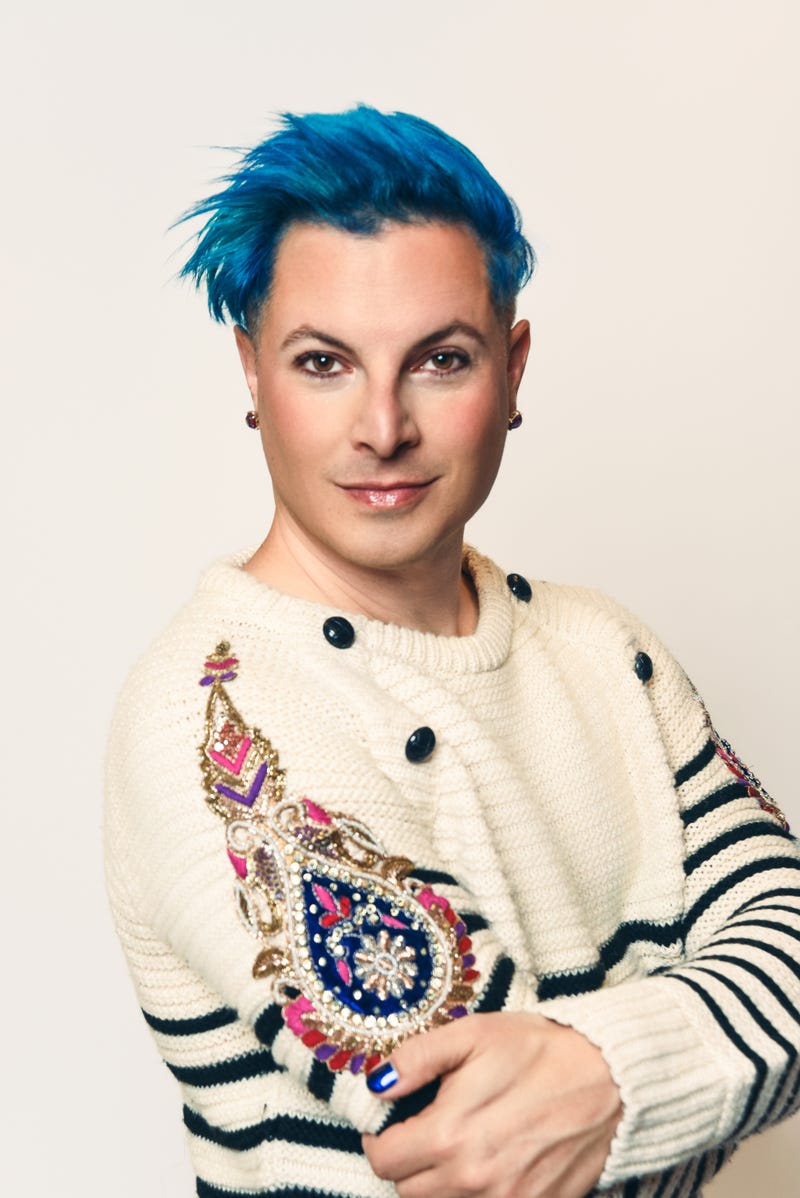
PHILADELPHIA (KYW Newsradio) — "At a certain level, it stops being escapism and it starts being sort of a mirror," said JP Karliak, one of the main voice actors behind Marvel Animation's "X-Men '97."
The Disney Plus series, which wraps its first season this week, is a continuation of the hit 1990s Saturday morning "X-Men" cartoon. The titular heroes are mutants who are born with special powers, but fight to protect a human world that fears and hates them.
"X-Men '97" was a smash hit from the beginning, drawing 5 million viewers in its first week. It’s also drawn raves from both critics and fans for its treatment of the popular superheroes, as well as its updated art style and fast-paced animation. As of this week, it has a 98% fresh rating on the online review aggregator Rotten Tomatoes, with a 94% audience rating.
But it was the fifth episode, "Remember It," that got "X-Men '97" trending online. In it, members of the X-Men travel to the mutant-led nation of Genosha, where they find a thriving, peaceful civilization. The peace is shattered when an armada of giant mutant-hunting robots, called Wild Sentinels, descend upon the island and — in a particularly visceral sequence — decimate much of its population in a single night.
It's a storyline drawn from the X-Men comics, but show creator Beau DeMayo took to X the night of its airing and revealed he also ripped it from the headlines. DeMayo was inspired by events including the 9/11 attacks, the 1921 Tulsa massacre and the 2016 mass shooting at Orlando's Pulse nightclub, which he used to frequent. "It was, like Genosha, a safe space for me and everyone like me to dance and laugh and be free," he wrote.
"Reading Beau's explanation of Genosha," Karliak told KYW Newsradio, "it's gutting. Every time I watch it, it feels worse."
He isn't the only one.
"You see a certain set of people just being perceived as one way because they have an extra gene — an X-gene — to give them powers and you've got to identify them as dangerous no matter what their power is," said Kameron Craighead, a content creator from Germantown. He says he finds a personal meaning in the X-Men's struggle for acceptance.
"It could be the worst power in the world, like to turn blue. Oh well, you've got to be a detriment to society or you're going to use your powers for greed ... when that's not the case at all."
The X-Men were created by Stan Lee and Jack Kirby in 1963 and were perceived for years by fans as an allegory for the civil rights movement. Craighead is quick to draw that parallel. "Being a Black man in America, [you're] being perceived as one way, perceived one way walking down the streets, perceived as something else getting on public transportation, you can be perceived [another way] in a work environment," he said.
"You look at the Avengers and in their universe, they are lauded and celebrated," said Karliak, "but the X-Men are outcasts, but even in spite of being villainized and demonized, they still fight for the betterment of humanity."

That disparity is something Craighead says relates to him. "The Avengers have powers and nobody gives two damns about anything. They're just the Avengers. The Fantastic Four came out saying, 'We're just a family of people that have powers and then we don't need masks or anything like that. It's just like, Oh, we're cool with that. That's fine.' With the X-Men, whatever they go through, it's this is a harsh reality of you're stuck in whatever you have to live with."
The X-Men have, over the years, evolved into a metaphor for other marginalized groups. "As the years went on, it also became metaphorical for the LGBT rights movement," said Karliak, an LGBTQ activist whose character, Morph, was announced ahead of the premiere as being nonbinary. The actor identifies as genderqueer, and says he personally relates to his shapeshifting avatar.
"I really see myself in so much of his journey," he said. "Also the importance of his existence as a queer superhero, I think, is so important to me now and would have been so important to me as a kid in the '90s."
Brian Johnson, manager of Brave New Worlds in Old City, says his customers also identify with the X-Men and their world. "So much of my customer base here at Brave New Worlds is of the LGBTQ community," he told KYW. "They have loved and embraced this major push for the X-Men and that angle."
Personally, he says he does as well, but for more universal reasons. "The X-Men are just sort of like a found family of misfits," Johnson said. "So it's like whenever you find that, that specific group of people that is your found family or your close-knit friend group, the X-Men are similar to that to me."
He also has an attachment to one of the most popular characters. "I'm a Wolverine guy," said Johnson, referring to the popular character with an unbreakable metal skeleton and claws. He's played by Canadian voice actor Cal Dodd, who voiced the character in the original series, as well as a number of video game spin-offs.
While Wolverine has been a focus in most X-Men adaptations, "X-Men '97" has given its entire ensemble cast a chance to shine, such as Craighead's favorite character, Cyclops, voiced in the new series by Ray Chase.
"He's not the strongest, but he's expected to be the leader, Craighead explained, "and always, nine times out of 10, has to make the toughest decisions for the team."
When pressed for his favorite character, Karliak gave a surprising answer. "I'm gonna say after this last [episode], I really like Magneto (voiced by Matthew Waterson). He's got some complexity," he said, referring to the team's longtime arch nemesis, a mutant extremist who typically vacillates between mutant supremacy and isolationism.
Magneto's arc throughout the new series saw him attempt to reform and join the X-Men's fight for coexistence between mutants and humans. However, the massacre at Genosha puts an end to his heroic ambitions. "I think Magneto is such a compelling villain because he has the opposing argument," Karliak shared. "Maybe Magneto is right."
Craighead echoed that sentiment. "They can never get cohabitation with humans because they just fear [mutants]," he opined.
"There's no upside to whatever they do whether it be to [relocate], whether it be Asteroid M, whether it just be living on their own island in San Francisco to just having Krakoa (a mutant nation in recent X-Men comics)."
While thematically dense, "X-Men '97" is still a superhero action show, and as such, it meets fan expectations.
"I avoided it at first because it wasn't looking like it was going to be something I was going to like. It was going to be too much of a nostalgia trip. Then I finally bit the bullet and jumped in and it's been amazing," Johnson said.
J.D. Holden, owner of Johnny Destructo's Hero Complex comic shop in Manayunk, said despite not enjoying the original cartoon, he was immediately taken with the new show.
"I thought it was great, especially the way that they used the different X-Men's powers. I never saw Cyclops use his his optic blasts in that to scoot around the battlefield and to slow his fall when the the [X-Men's Blackbird jet] explodes."
"X-Men '97" has already been renewed for two more seasons, and Season 2's scripts have already been written. When asked about what fans might expect in coming seasons, Karliak was tight-lipped — and understandably so, as Marvel Studios is famously secretive about coming projects. He did share one small tidbit, though.
"I would say that I've found that there's some really cool stuff for me to do," he teased.
"I've done some very cool stuff in this first season, but I feel like there are a few moments in the second season where there's more and more in a big way. Let's put it that way."
